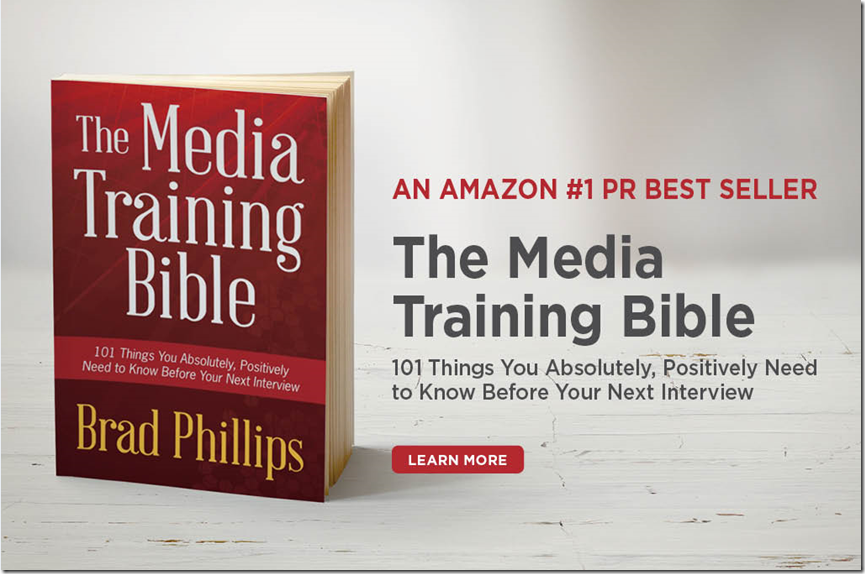10 Media Ground Rules For Working With Reporters
Editor’s Note: Six years ago, I wrote a post called “8 Ground Rules for Working With Reporters.” Since then, media norms have continued to evolve, as has my own thinking on these topics. This post updates and adds to the original.
One recent media training client told me that he refuses to speak with reporters unless they allow him to approve the story before it runs.
Another told me that her boss surreptitiously records media interviews in case the reporter “screws” him.
Yet another informed me that her company refuses to allow spokespersons to speak on the record.
Such stories are more common than you might think. And while there’s a place for insisting upon certain interviewing ground rules, it’s also important to make sure your requests are truly in your best interest—and that they don’t violate newsroom protocols maintained by many media organizations.
In this post, you’ll learn 10 of the most important ground rules for working with reporters.

1. Pre-interview the reporter: When a reporter calls, many spokespersons and subject-matter experts begin answering questions immediately. Unless you’re commenting on a breaking news story that you’re well prepared to address, it’s generally best to use that initial phone call to learn more about the reporter, the focus of the story, and how you fit into the piece (here are eight “pre-interview” questions to ask when a reporter calls). Then, after you’ve researched the reporter and prepared your messages, you can return their call (while making sure you meet any deadlines).
2. Know when to return a reporter’s call or email: Speaking of deadlines, it’s generally best not to wait until the deadline to return a reporter’s call. Why? Because if you wait until the last minute, their story is probably mostly completed, meaning that at best, you’ll only get a short quote in a story that’s already been written. Returning a reporter’s call earlier in the process may help you frame their story—or at least persuade them to consider an alternate viewpoint or side angle. (On the other hand, if your goal is to minimize your presence in the story, waiting until the last minute to email a short statement prevents the reporter from being able to say that you refused to comment.) Speaking of which…
3. Never say, “No comment”: There is no phrase more damning in a spokesperson’s lexicon. The public regards someone uttering those words the same way they do a murder suspect who shouts, “I did it!” into a megaphone in a crowded park: guilty as charged. That doesn’t mean you have to tell a reporter everything. Here’s what you can say instead when a reporter enters a “no-go zone.”

4. Don’t go off the record (usually): Journalists—even some working for the same news organization—don’t agree on what “off the record” means. If reporters can’t agree on the definition, you’re going to get into trouble if you rely on it to establish confidentiality. Still, unlike some media trainers, I maintain that there’s a place for going off the record…sometimes. But those rare instances should be decided upon strategically in advance, not spontaneously, and always with full awareness of the risk of being unmasked as the source. If you go off the record: consult with a communications professional in advance; consider your history with the reporter; ask the reporter to define what “off the record” means to them; and forge an off-the-record agreement before speaking—not only after you’ve said something compelling.
5. You can request questions in advance (sometimes): I’d avoid asking major news outlets (e.g. Wall Street Journal, CBS News) for questions in advance—they usually won’t send them—but you can ask whether there’s any specific information or data you should pull in advance to help prepare for the interview. On the other hand, many reporters working for smaller news organizations, trade publications, or entertainment media outlets are willing to share their questions with you prior to an interview. Still, don’t get lulled into a false sense of comfort—reporters who send questions in advance can still ask off-topic questions during the interview.
6. You cannot “approve” a story: Many high-powered executives, accustomed to directing subordinates, instruct reporters to send them a draft of their articles before publication. Most reporters will not only reject that request, but will resent that the executive treated them like an employee requiring approval. Journalists have no obligation to share their final story with you, so don’t ask. But…
7. You can offer to fact-check a story: Offering to fact-check a story is different from requesting to see a story prior to publication. Whereas asking a reporter to see a story in advance suggests a controlling executive, making yourself available to check an article’s key facts is usually regarded as helpful. They might call you to review a single fact or email you a key section of the article for review.

8. You can record the interview: You might consider recording your interview, particularly if you expect the reporter to be hostile or confrontational. In fact, many of our clients have told me that they record every interview they do as a matter of policy—if they get misquoted, they have documented proof of the error to release to the public. Still, I generally advise against recording the most straightforward interviews, as doing so can create a defensive environment before you even get started. If you decide to tape, keep in mind that many states require you to notify the other party that you are recording—so check the law in your state (or, better yet, just tell the reporter you’re recording).
9. You can limit the time of the interview: Doing so can help you prevent the conversation from turning into a harmful fishing expedition. If you believe a reporter is primarily interested in digging for dirt (and if you decide not to turn down the interview outright), tell the reporter you’d love to talk but only have a 15-minute window available. Although this can be a useful tool in certain situations, make it a rare exception to the rule, not your standard operating procedure. Have an exit plan in case the reporter goes long.
10. Stay in your lane: In the midst of a high-pressured interview, many spokespersons feel compelled to answer every question they’re asked. If you’re asked a question that’s truly outside of your lane—for example, if you’re a scientist who’s asked about your organization’s latest financial statement—it’s perfectly acceptable to tell the reporter that the focus of your work is scientific research, not finances. You can offer to connect the reporter with a more appropriate person for that topic or, for more straightforward questions, to get back to them with the answer.
Brad Phillips is president of Phillips Media Relations, which specializes in media and presentation training. He is the author of two books: “The Media Training Bible” and “101 Ways to Open a Speech.”



Thanks a lot for all the content you make available on your blog, Brad! I became aware of you through xxx.
Any hints on how to react to this kind of interview situation?
An interviewer sent me two dozen questions he wanted to address, mostly technical details on how to build up my type of business. I prepared the answers. He did not seem to like my answers, and I noticed him getting more and more nervous during the call.
After half of the agreeed interview time, it turned out that he had only one question really, which he had not listed, and he was pressing me to answer this question in a way that confirmed his uninformed view. Each time I brought arguments that countered his view, he furiously countered them with „I do not believe that!“, without giving any reasons for it.
Any tips how to find out such a bias before the interview? Like asking „If you coukd just ask me one question, what would it be?“
Should I abort such an interview and withdraw my agreement to publish any parts of the interview?
I did not mean to imply I became aware of you through x-rated content, my bad. 🙂 I saw your comments cited in Joan Stewert‘s recent newsletter, instead.